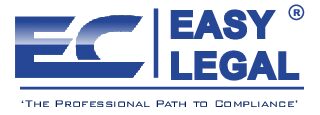due diligence of companies
Due diligence is a critical process undertaken by organizations to thoroughly investigate and evaluate potential business opportunities, investments, or partnerships. This meticulous process ensures that all aspects of the target entity are scrutinized, providing valuable insights and minimizing risks associated with business transactions.
Types of Due Diligence
Due diligence can be broadly categorized into several types, each focusing on specific aspects of the target entity:
- Financial Due Diligence
- Objective: To assess the financial health and stability of the target company.
- Key Areas: Financial statements, revenue, profit margins, cash flow, liabilities, and financial projections.
- Legal Due Diligence
- Objective: To evaluate the legal standing and compliance of the target company.
- Key Areas: Contracts, intellectual property, litigation history, regulatory compliance, and corporate governance.
- Operational Due Diligence
- Objective: To examine the operational efficiency and capabilities of the target company.
- Key Areas: Production processes, supply chain management, IT systems, and human resources.
- Commercial Due Diligence
- Objective: To assess the market position and growth potential of the target company.
- Key Areas: Market analysis, competitive landscape, customer base, and marketing strategies.
- Environmental Due Diligence
- Objective: To evaluate the environmental impact and compliance of the target company.
- Key Areas: Environmental policies, sustainability practices, and potential liabilities.
Due Diligence Process
The due diligence process typically involves the following steps:
- Preparation and Planning
- Define the scope and objectives of due diligence.
- Assemble a due diligence team with expertise in relevant areas.
- Develop a due diligence checklist and timeline.
- Information Gathering
- Request and review necessary documents from the target company.
- Conduct interviews with key personnel and stakeholders.
- Perform site visits and inspections, if applicable.
- Analysis and Evaluation
- Analyze the collected data to identify potential risks and opportunities.
- Evaluate the target company’s strengths and weaknesses.
- Assess the alignment of the target company with the strategic goals of the acquirer.
- Reporting and Recommendations
- Prepare a comprehensive due diligence report summarizing findings and conclusions.
- Provide recommendations and actionable insights for decision-making.
- Present the report to relevant stakeholders and decision-makers.
Importance of Due Diligence
Due diligence plays a crucial role in ensuring the success and sustainability of business transactions. Some of its key benefits include:
- Risk Mitigation: Identifying and addressing potential risks before finalizing a transaction.
- Informed Decision-Making: Providing a solid foundation for making informed business decisions.
- Valuation Accuracy: Ensuring that the target company is accurately valued based on its true potential.
- Regulatory Compliance: Ensuring compliance with legal and regulatory requirements.




